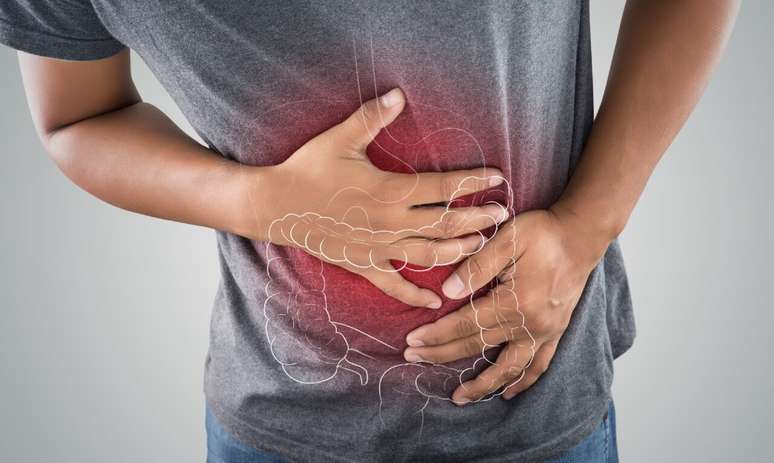The gastroenterologist explains that changing your lifestyle helps avoid symptoms. Understand what irritable bowel syndrome is
If you experience stomach ache or difficulty going to the bathroom often, you may be suffering from irritable bowel syndrome. According to the Brazilian Federation of Gastroenterology, the condition is a disorder of the digestive tract that causes abdominal pain and intestinal constipation and/or diarrhea.
This condition, which affects approximately 10-20% of the Brazilian population, is more common in women and can worsen due to moments of stress or the intake of certain foods. This is because some food options can cause certain symptoms and a decrease in quality of life, such as milk and dairy products, as well as fats.
Symptoms of irritable bowel syndrome
According to Dr. Eric Pereira, gastroenterologist at Hospital e Clínica São Gonçalo (HCSG), the most common symptoms tend to be:
- Pain and change in bowel habits (diarrhea and/or constipation);
- Abdominal distension;
- Excess gas;
- Sensation that the intestine is emptying incompletely.
“If a person frequently suffers from these symptoms, he should consult a gastroenterologist to have an accurate diagnosis, since some symptoms of irritable bowel syndrome are similar to other gastrointestinal problems, such as cancer, food intolerances, parasites and others, which need to be eliminated treated. Discarded as soon as possible,” warns the doctor, who is also a member of the Brazilian Federation of Gastroenterology and the Gastroenterology Society of Rio de Janeiro.
Diagnosis and treatment
One of the most common tests to discover the disease is colonoscopy, a procedure in which the doctor analyzes the patient’s large intestine through a colonoscope, equipped with a microcamera to capture images and, if necessary, perform biopsies.
“This test is important and painless and can identify other diseases, such as colon cancer, anemia, intestinal tuberculosis, Crohn’s disease, diverticulosis, etc.,” explains the doctor.
The specialist reminds us that the treatment varies depending on the patient. But, in general, it requires a change in lifestyle, such as diet and increased physical activity. In some cases, the patient may resort to drugs that relieve pain and intestinal spasms.
Source: Terra
Ben Stock is a lifestyle journalist and author at Gossipify. He writes about topics such as health, wellness, travel, food and home decor. He provides practical advice and inspiration to improve well-being, keeps readers up to date with latest lifestyle news and trends, known for his engaging writing style, in-depth analysis and unique perspectives.









